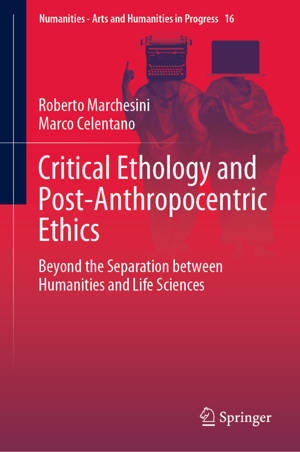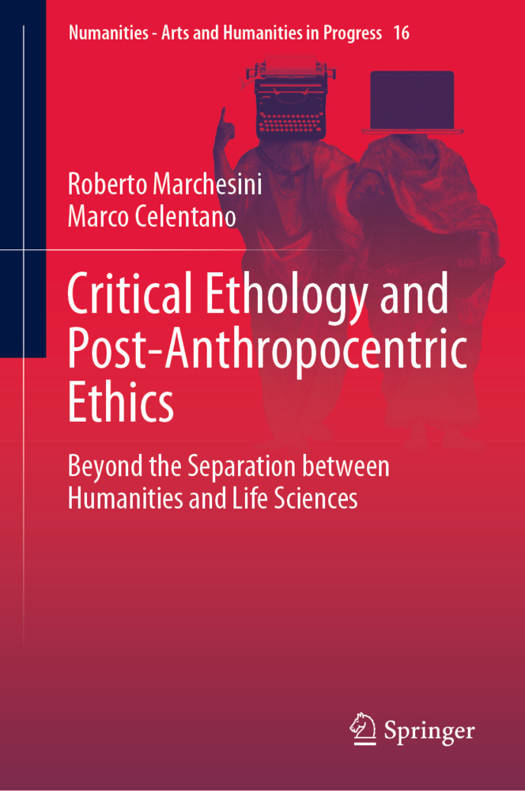
- Retrait gratuit dans votre magasin Club
- 7.000.000 titres dans notre catalogue
- Payer en toute sécurité
- Toujours un magasin près de chez vous
- Retrait gratuit dans votre magasin Club
- 7.000.0000 titres dans notre catalogue
- Payer en toute sécurité
- Toujours un magasin près de chez vous
Critical Ethology and Post-Anthropocentric Ethics
Beyond the Separation Between Humanities and Life Sciences
Roberto Marchesini, Marco CelentanoDescription
The primary purpose of this book is to contribute to an overcoming of the traditional separation between humanties and life sciences which, according to the authors, is required today both by the developments of these disciplines and by the social problems they have to face. The volume discusses the theoretical, epistemological and ethical repercussions of the main acquisitions obtained in the last decades from the behavioral sciences. Both the authors are inspired by the concept of a "critical ethology", oriented to archive the nature/culture and human/animal dichotomies. The book proposes a theoretical and methodological restructuring of the comparative study of the animal behavior, learning, and cultures, focused on the fact that thought, culture and language are not exclusively human prerogatives. The proposed analysis includes a critique of speciesism and determinism in the ethical field, and converge with the Numanities, to which the series is dedicated, on a key point: it is necessary to arrive at an education system able to offer scientific, social and ethical skills that are trasversal and transcendent to the traditional humanities/life sciences bipartition. Skills that are indispensable for facing the complex challenges of the contemporary society and promoting a critical reflection of humanity on itself.
Spécifications
Parties prenantes
- Auteur(s) :
- Editeur:
Contenu
- Nombre de pages :
- 270
- Langue:
- Anglais
- Collection :
- Tome:
- n° 16
Caractéristiques
- EAN:
- 9783030742027
- Date de parution :
- 23-05-21
- Format:
- Livre relié
- Format numérique:
- Genaaid
- Dimensions :
- 156 mm x 234 mm
- Poids :
- 576 g

Les avis
Nous publions uniquement les avis qui respectent les conditions requises. Consultez nos conditions pour les avis.






